Heavy Metal History - Origins, Influences, and Evolution of a Musical Revolution
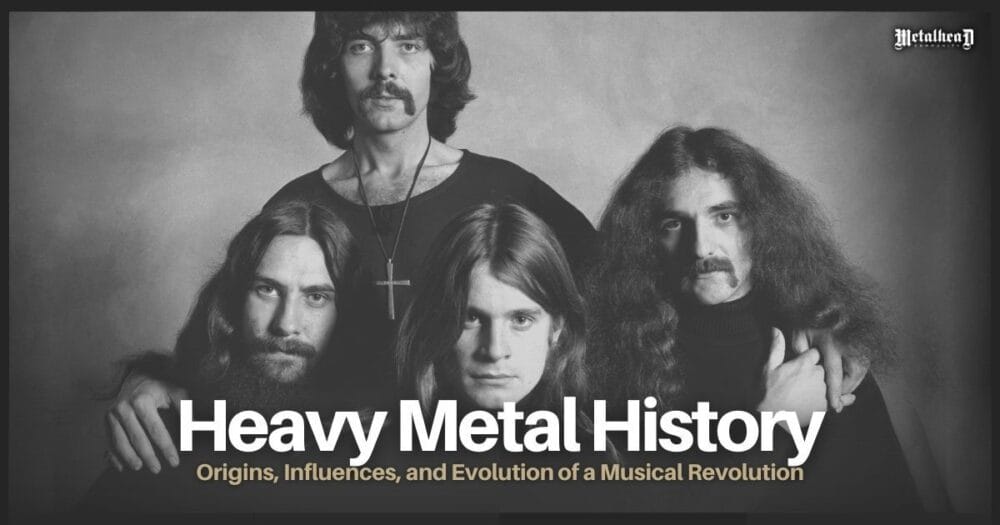
Rock music in the 1970s was an unstoppable force that captivated the entire world with its rebellious spirit and sonic innovation, with the help of technological development in the sound industry. The beginning of the decade witnessed the rise of three iconic English bands; Led Zeppelin and Deep Purple from London, and Black Sabbath from Birmingham, who pushed the boundaries of rock music and set the stage for the emergence of the next big thing in the world of music; heavy metal.
As rock music evolved throughout the '70s, it gradually began to adopt heavier, more aggressive tones and darker lyrical themes. The sound became more distorted, the riffs more intense, and the performances more electrifying. This evolution paved the way for the birth of heavy metal, a genre that would take the raw power of rock and amplify it to new levels of intensity.

Forging a New Sonic Frontier
Born out of the raw power of rock, heavy metal was marked by intense, distorted guitar riffs, unique drum patterns, and aggressive vocals. It boldly stepped into the musical scene, and although its roots can be traced back to the late 1960s, it has continued to gain popularity. The timeless appeal of heavy metal, with its unmatched energy, ensures its enduring place in the global music sphere.
Unveiling the Origin of the Term 'Heavy Metal'
The etymology of the term 'Heavy Metal' is quite intriguing where many theories suggest it evolved from the phrase 'heavy metal poisoning' from the 19th century, while novelist William Seward Burroughs featured a character called 'the heavy metal boy' in one of his novels. But its connection with music began when it was used in the lyrics of Steppenwolf's 1968 hit "Born to Be Wild". By 1970, the term had been widely accepted as a descriptor for this unique musical style.

From Classical Roots to Heavy Metal
Rock music owes a significant debt to classical music. Many early metal guitarists, well-versed in classical techniques, pioneered new chord and solo progressions that would shape the genre's energy, atmosphere, and live performances. Their innovative approach propelled heavy metal from a small wave in the 1960s to a formidable tide in the 1970s.
At its inception, heavy metal emerged as a groundbreaking musical wave that captivated a generation in search of a new form of expression, defied conventions and pushed the boundaries of what was deemed possible in music. While some argue that it is only "heavy rock", heavy metal is characterized by its intense and powerful sound, featuring distorted riffs, thunderous drumming, and electrifying guitar solos, drawing influences from blues, rock, and classical music, fused these elements to create a unique and exhilarating sonic experience.
With its raw energy and emotive lyrics, metal music provided an outlet for listeners to unleash their inner emotions and channel frustrations / negative energy into a cathartic musical journey. It resonated with those who sought a sense of belonging and found solace in the rebellious spirit of the genre. Eventually, metal music became more than just music; it became a way of life, a subculture that paved way to numberless subgenres, united fans around the world, forging a lasting connection, and leaving an indelible mark on the history of music.

Pioneers Who Shaped the Stage for Heavy Metal
The pioneers of heavy metal drew inspiration from a diverse range of musical genres and artists, each contributing to the genre's unique sound and style. The blues played a fundamental role in shaping rock, so the heavy metal, with its raw emotion and expressive guitar playing. Artists like Muddy Waters (McKinley Morganfield), Howlin' Wolf (Chester Arthur Burnett), and Robert Johnson laid the foundation for the heavy, distorted guitar sound that would become synonymous with the genre.
"He electrified the blues—literally and figuratively.
You could call his the guitar that launched a thousand bands. Muddy Waters’ playing was revelatory, his singing unrivaled. He has inspired such icons as the Rolling Stones and Eric Clapton to take up rock’s legacy". - Rock and Roll Hall of Fame on Muddy Waters
- Muddy Waters (McKinley Morganfield): Muddy Waters was an American blues musician who played a significant role in shaping the genre, and his influence helped the development of rock, so the heavy metal. He was born on April 4, 1913, in Mississippi, and his innovative guitar playing and powerful vocals earned him the title of the "Father of Chicago Blues." Muddy Waters' music was characterized by its raw emotion and electrifying guitar solos, which would later inspire heavy metal guitarists.
- Howlin' Wolf (Chester Arthur Burnett): Howlin' Wolf was another influential blues artist who contributed to the development of heavy metal. Born on June 10, 1910, in Mississippi, he was known for his deep, booming voice and intense stage presence. Howlin' Wolf's music was characterized by its gritty, raw sound and emotional intensity. His powerful vocals and distinctive style had a profound impact on the evolution of blues and influenced many heavy metal vocalists.
- Robert Johnson (Robert Leroy Johnson): Robert Johnson was an American blues musician who was born on May 8, 1911, in Mississippi. Although his career was relatively short-lived, his contributions to the blues were immense. Johnson's haunting vocals, intricate guitar playing, and introspective lyrics have made him a legendary figure in the blues world. His songs, such as "Cross Road Blues" and "Hellhound on My Trail," have been covered by countless artists and continue to inspire musicians in various genres, including rock and heavy metal.
Another influential movement was the psychedelic rock of the 1960s, with bands like Cream, The Jimi Hendrix Experience, and The Yardbirds pushing the boundaries of sound and experimentation. Their innovative use of guitar effects and unconventional song structures left a lasting impact on the emerging metal scene.
Classical music also made its mark on heavy metal, with guitarists like Jimmy Page and Ritchie Blackmore incorporating elements of classical composition and technique into their playing. This infusion of classical influence added a sense of grandeur and complexity to the genre.
The early rock 'n' roll pioneers, including Elvis Presley and Chuck Berry, as well as the British Invasion bands like The Beatles and The Rolling Stones, provided a solid rock foundation from which heavy metal would emerge. Their energetic performances, rebellious attitudes, and catchy melodies all played a part in shaping the spirit and ethos of heavy metal.
These diverse influences, ranging from the blues to psychedelia, classical music to rock 'n' roll, converged to form the rich tapestry of metal. The heavy drum beats, distorted riffs, and profound bass solos that emerged from this fusion set the stage for the birth of heavy metal as a distinct and powerful musical force.
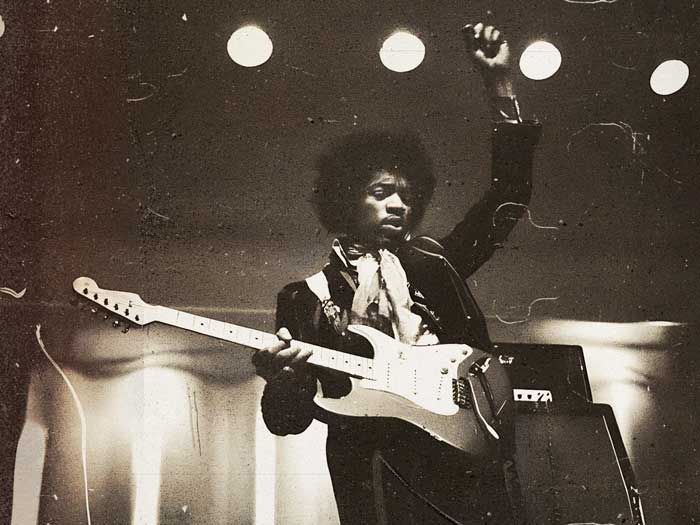
Amplifying the Power: Technological Advancements and Heavy Metal's Birth
The emergence of metal is deeply linked with the evolution of technology. In the late 1960s and early 1970s, as rock music leaned towards louder, more distorted sounds, the demand for guitar amplifiers and speakers that could provide these tones skyrocketed. The result was more powerful and versatile amplifiers, with brands like Marshall introducing models that soon became essentials for bands like Deep Purple, Led Zeppelin, and Black Sabbath.

The Architects: Foundational Bands that Defined Heavy Metal
Black Sabbath (previously named the Polka Tulk Blues Band (1968) and Earth (1968–1969) is undeniably the band that lead the way to heavy metal, emerged from Birmingham, England, in 1968 by Tony Iommi, Geezer Butler, Bill Ward, and Ozzy Osbourne. They adopted a darker sound than most of their contemporaries, incorporating heavier, down-tuned guitar riffs, gloomy themes, and dissonant harmonies that were reminiscent of horror films. Their heavy sound, evil vibes, and psychedelic roots later formed the foundation of heavy metal and paved the way for future subgenres.
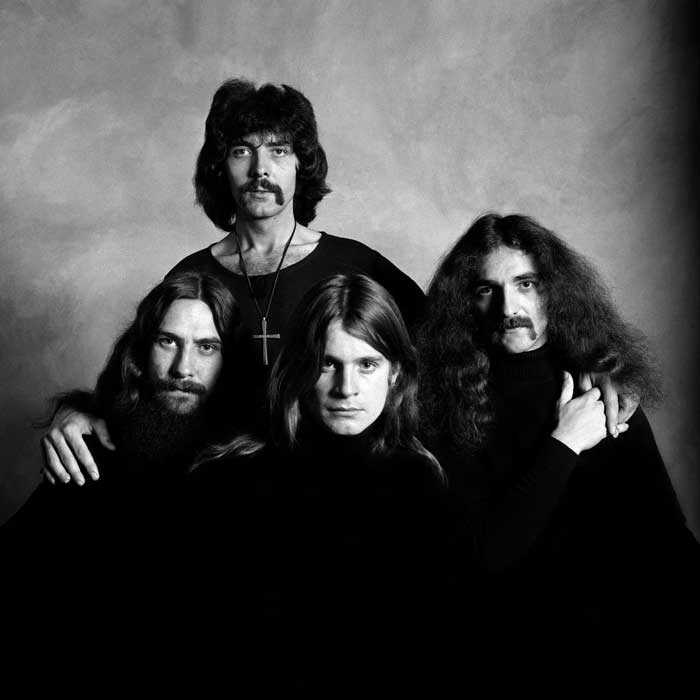
Led Zeppelin, on the other hand, had an approach characterized by the fusion of blues, folk, and rock, resulting in a sound that was both heavy and complex. Jimmy Page's innovative guitar playing, Robert Plant's distinctive vocal style, and John Bonham's thunderous drumming, together with John Paul Jones' musical versatility, made Led Zeppelin a key influencer in the formation of heavy metal.

Deep Purple (previously named as Roundabout (1967)), known for its blend of rock and classical elements, also played a crucial role in defining the early sound of heavy metal. The band's musical prowess, particularly Ritchie Blackmore's neo-classical guitar style and Jon Lord's classically-influenced keyboard playing, had a significant influence on the genre. Deep Purple was also one of the first bands to incorporate complex song structures and virtuosity, hallmarks of later progressive and neoclassical metal bands.

Key Personalities in Heavy Metal's Evolution
Tony Iommi (Anthony Frank Iommi Jr.) of Black Sabbath is often hailed as the godfather of heavy metal. Iommi's distinctive guitar playing, characterized by down-tuned riffs, power chords, and evil notes created the blueprint for the heavy metal sound. His ability to overcome adversity (strongly recommended read: Tony Iommi losing his fingertips before becoming the Godfather of Heavy Metal) also embodied the resilient spirit of metal culture.

Jimmy Page (James Patrick Page OBE) of Led Zeppelin was instrumental in bringing a sense of mystique and depth to heavy metal. Page's songwriting and innovative guitar techniques have influenced countless guitarists, and his incorporation of diverse styles, from blues and folk to Indian and Arabic music, pushed the boundaries of the genre.

Ozzy Osbourne (John Michael Osbourne), of Black Sabbath, is one of the most iconic figures in heavy metal. Known as the "Prince of Darkness," Osbourne's unique vocal style and larger-than-life personality played a significant role in popularizing heavy metal. His solo career also significantly contributed to the genre's evolution.

Landmark Albums
The album Black Sabbath by Black Sabbath, released in 13 February 1970, is often regarded as the first genuine heavy metal album. Its gloomy and doom-laden sound, paired with dark, occult-themed lyrics, set the tone for many metal bands to come.
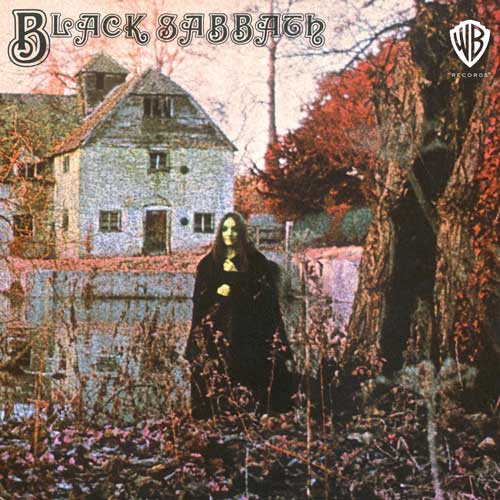
Led Zeppelin II, released on 22 October 1969 in the United States and on 31 October 1969 in the United Kingdom, showcased Led Zeppelin's evolving musical style, blending hard rock with blues, and featuring some of the band's most iconic songs like "Whole Lotta Love" and "Heartbreaker". The album's success and influence solidified Led Zeppelin's role in the development of heavy metal.
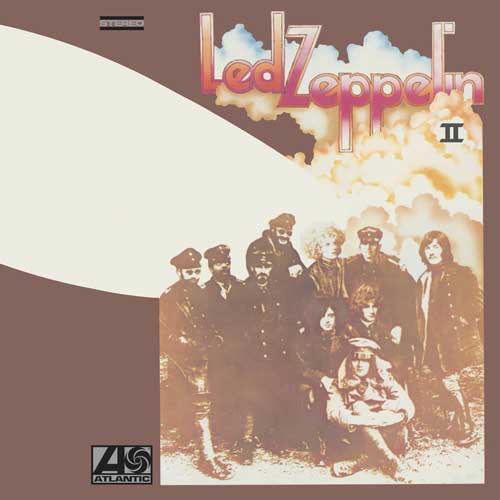
In Rock by Deep Purple, released on 5 June 1970, signaled the band's shift towards a heavier, more guitar-dominated sound. Songs like "Child in Time" and "Speed King" demonstrated the band's musical versatility and prowess, shaping the sound of hard rock and metal.
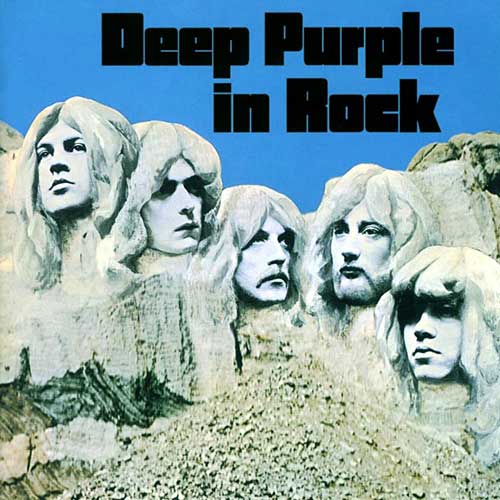
Significant Geographic Locations
Birmingham, England, is often hailed as the birthplace of heavy metal due to it being the home of Black Sabbath and Judas Priest, among countless others. The city's industrial landscape reportedly inspired the heavy, grinding sound of these bands.
London, England, was a significant hotspot in the development of heavy metal. The city's vibrant music scene and cultural diversity played a crucial role in shaping the genre. Led Zeppelin, Deep Purple, and Iron Maiden are just a few of the legendary bands that emerged from London and left an indelible mark on the heavy metal landscape. The city became a breeding ground for creativity and innovation, providing a platform for musicians to experiment and push the boundaries of the genre.
Across the pond, the San Francisco Bay Area in California became a key geographical location for the evolution of metal, particularly in the 1980s when thrash metal took the world by storm. Thrash metal bands such as Metallica, Exodus, and Testament emerged from this region, bringing a faster, more aggressive sound to the genre. The Bay Area's underground music scene and the camaraderie among these bands fostered a spirit of rebellion and musical excellence that continues to influence to this day.
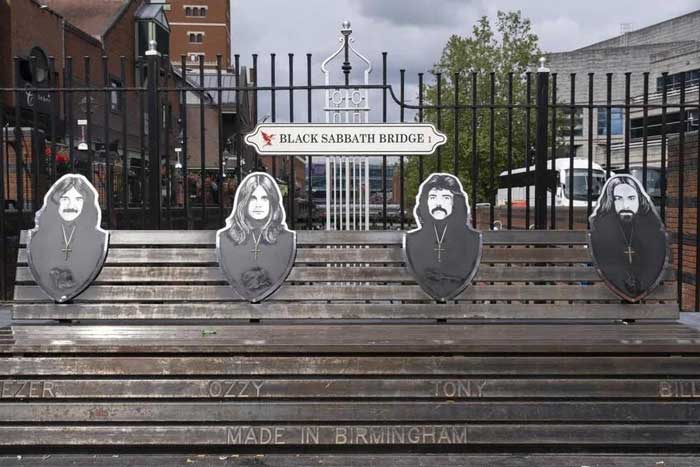
The Cultural Significance of Heavy Metal
Heavy metal goes beyond being just a genre; it serves as a powerful expressive outlet, giving voice to emotions often silenced in popular discourse. Despite all the criticism, heavy metal provides a platform for expressing overlooked or suppressed emotions, resonating with listeners on a personal level. It fosters a sense of community and belonging, creating a global subculture with its own fashion, aesthetics, and shared values. Additionally, heavy metal's impact extends to inspiring subgenres, influencing fashion, visual arts, and popular culture. It empowers individuals, nurturing resilience and rebellion against societal norms.

The Enduring Legacy of Heavy Metal
Heavy metal has left a profound imprint on human history, defying borders and societal norms, resonating with millions across the globe. Many heavy metal artists have made significant contributions to society, establishing charitable foundations, and supporting noble causes through their performances. The legacy stretches far beyond its music. It has become a cultural and artistic phenomenon that has left an indelible mark on the world, inspired generations of musicians, artists, and fans alike, shaping their perspectives and influencing their lifestyles. Its impact on popular culture can be seen in the enduring popularity of iconic bands and the proliferation of subgenres that have emerged in time. Its rebellious and defiant spirit has resonated with millions, empowering them to challenge social norms, question authority, and find solace in the power of music. The genre has also demonstrated its ability to bring people together, creating a sense of community and belonging among its fans.

In conclusion, heavy metal's journey from a derivative of rock music to a global wave with enormous influence is a testament to its enduring appeal. By giving a voice to suppressed emotions and promoting free expression, heavy metal has sealed its place in music history and for years to come. Thank you for reading.
Listen to Metalhead Community's Monsters of Metal Underground playlist on Spotify



